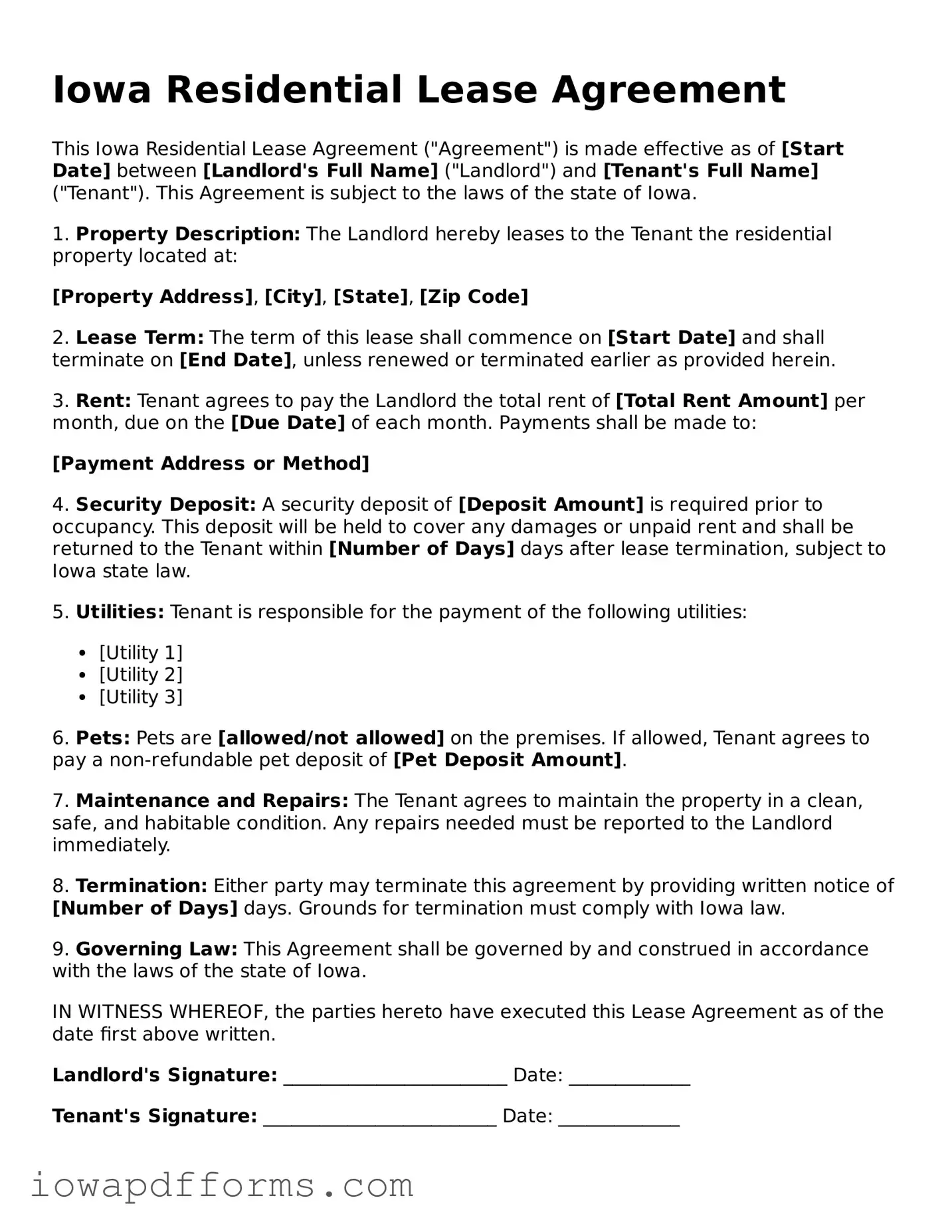Blank Residential Lease Agreement Form for the State of Iowa
The Iowa Residential Lease Agreement is a legally binding document that outlines the terms and conditions between a landlord and a tenant for renting residential property in Iowa. This form serves to protect the rights of both parties, ensuring clarity and mutual understanding throughout the rental period. Understanding its components is essential for anyone involved in a rental agreement in Iowa.
Fill Out This Document Now

Blank Residential Lease Agreement Form for the State of Iowa
Fill Out This Document Now

Fill Out This Document Now
or
Free Residential Lease Agreement
Fast and easy form completion
Edit, save, download — complete Residential Lease Agreement online today.